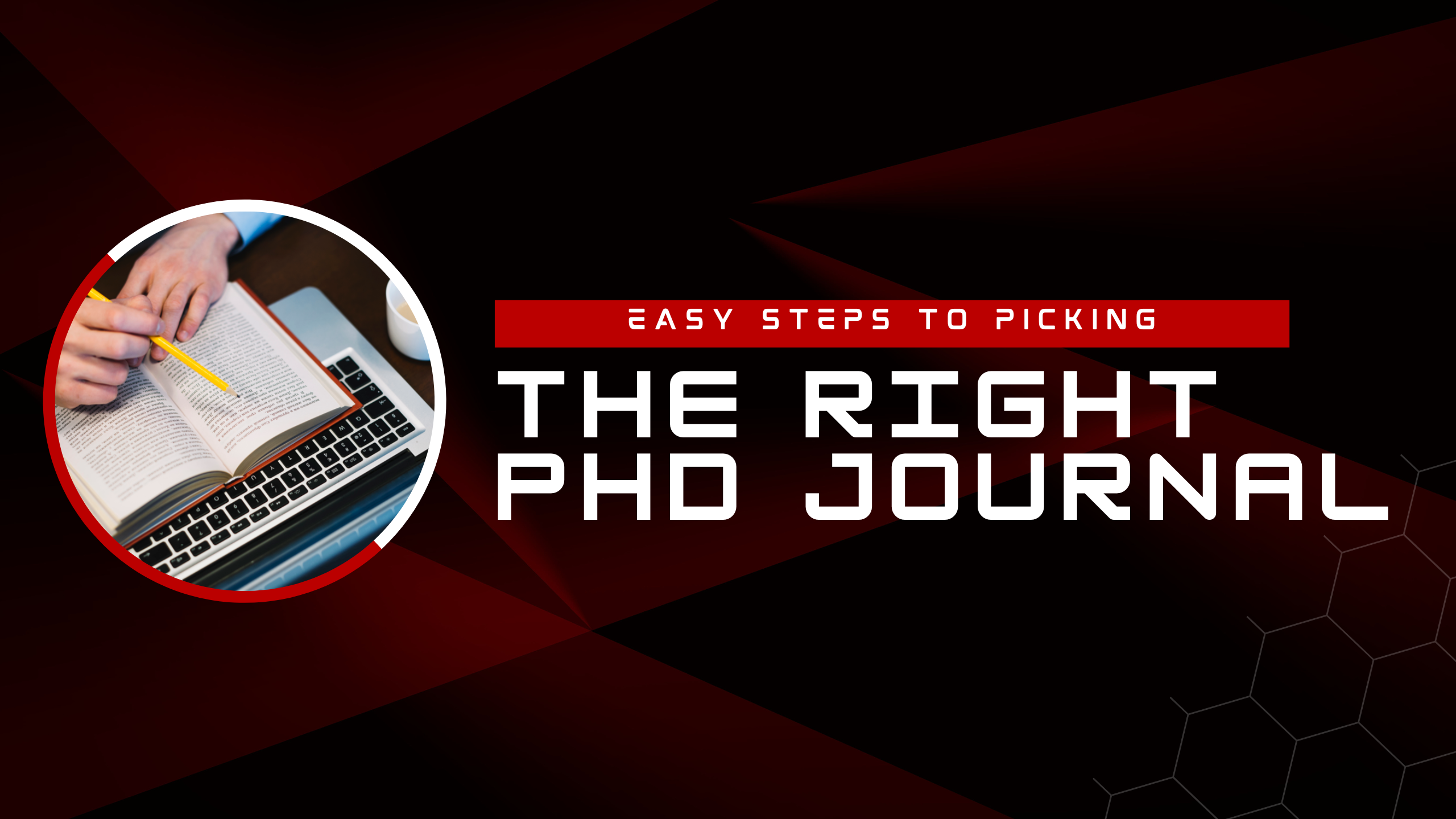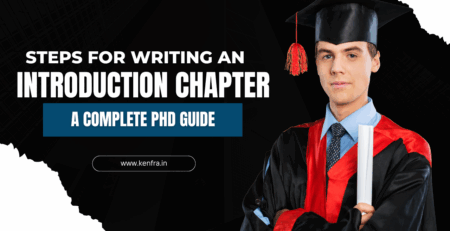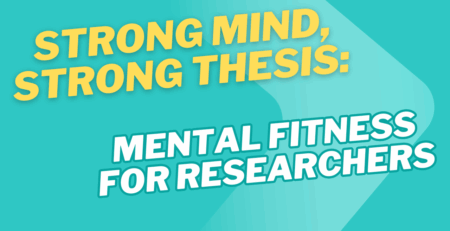19Apr

Choosing the Right PhD Journal to publish your research is a critical decision that can significantly impact your academic career. With thousands of journals available, each with different scopes, submission guidelines, and impact levels, it can be overwhelming to pick the Right PhD Journal. This blog will walk you through easy, actionable steps to help you select the ideal PhD journal, ensuring maximum visibility, credibility, and relevance for your research.
Whether you’re a first-time author or preparing your thesis for publication, this guide will simplify the journal selection process and help you make an informed decision.

Publishing in the right journal can:
On the flip side, publishing in the wrong journal can lead to rejection, delayed publication, or worse, association with predatory publishers.
Let’s look at how to avoid these pitfalls.
Before you start looking at journals, clearly define your research domain and the audience who would benefit from your work. Are you targeting specialists in a niche field or a broader academic community?
Ask yourself:
Once you identify your audience, you can narrow down journals that focus specifically on that subject area.
To avoid predatory or low-quality journals, always start with reliable databases such as:
These platforms provide insights into journal rankings, impact factors, h-indexes, and subject coverage.
You can also use tools like Elsevier Journal Finder, Springer Journal Suggester, or Edanz Journal Selector to match your manuscript with relevant journals.
Every journal has a “Scope” or “Aims and Objectives” section that outlines what kind of papers they accept. Make sure your research fits the journal’s thematic focus.
For example, if your research is on AI-driven healthcare diagnostics, don’t submit to a general computer science journal. Look for one that specifically covers AI in medical applications.
Check:
Tip: Read a few recently published papers from the journal. Do they align with your study?
When selecting a PhD journal, impact and credibility matter. Some common metrics include:
While a high impact factor isn’t everything, it does help boost your research visibility.
Before submitting your manuscript, thoroughly review the journal’s submission guidelines. Journals differ in terms of:
Not following submission guidelines is a common reason for desk rejection.
Bonus Tip: Use reference management tools like Zotero or Mendeley to format citations correctly.
You’ll need to decide whether you want to publish in:
Open access improves visibility and citations, but you must ensure the journal is not predatory.
Check if the journal is listed in DOAJ or follows COPE (Committee on Publication Ethics) guidelines.
Time matters, especially if you have submission deadlines for graduation, funding, or job applications. Find out:
Many journals share this data on their websites. If speed is crucial, opt for journals with rapid review and publication processes.
Predatory journals promise quick publication with little to no peer review. They often:
Always verify the journal’s credentials using databases like Beall’s List, Think. Check. Submit., and Scopus.
Remember: Publishing in a predatory journal can damage your academic reputation.
If you’re still unsure, talk to your PhD supervisor, mentors, or colleagues. They can guide you based on their publishing experience and help you avoid common pitfalls.
Also, look at where the top researchers in your field are publishing and follow their lead.
Make a list of 3–5 potential journals. For each one, compare:
This comparison helps you make a confident, data-driven decision.
Choosing the Right PhD Journal isn’t just about impact factor — it’s about finding the best match for your research and academic goals. By following these 10 easy steps, you’ll not only increase your chances of acceptance but also ensure your work reaches the right audience and contributes meaningfully to your field by being published in the Right PhD Journal.
Take your time, do your research, and trust the process.
Kenfra Research understands the challenges faced by PhD scholars and offers tailored solutions to support your academic goals. From topic selection to advanced plagiarism checking.
State Eligibility Test (SET) The State Eligibility Test (SET) is a common eligibility test conducted in India to determine the eligibility... read more

The introduction chapter is the opening to your thesis—it sets the tone, provides the foundation, and outlines what’s to come... read more

The path to a PhD is a marathon, not a sprint. It's a journey marked by intellectual challenges, emotional... read more

Academic success is not only about doing good research but also about making strong professional connections. Working with others opens... read more
Allahabad University (AU) has announced that it will start offering PhD programs in three foreign languages – French, Russian, and... read more

If you’re planning to start your PhD journey in 2026, this is the perfect time to explore the best and... read more

Many students and academic professionals are asking an important question in 2026: Is PhD mandatory for Assistant Professors? Let us... read more
WhatsApp us
Leave a Reply